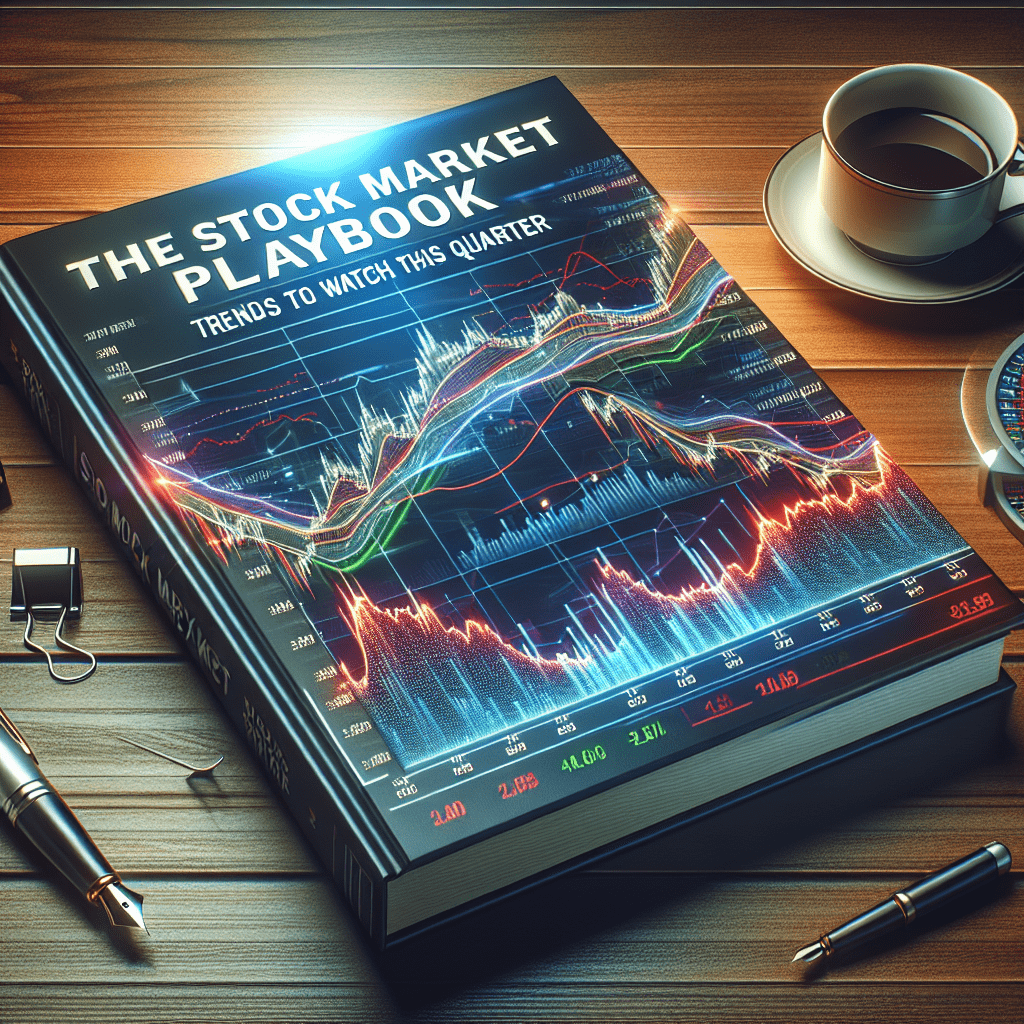Understanding the Current Landscape
The stock market is a constantly evolving entity, impacted by various economic indicators, global events, and market sentiments. This quarter presents unique challenges and opportunities for investors. To effectively navigate these waters, it is essential to stay informed about prevailing trends that could influence market behavior.
Trend 1: Economic Recovery and Interest Rates
As economies recover from the effects of the pandemic, monitoring interest rates becomes crucial. Central banks, particularly the Federal Reserve, have signaled shifts in monetary policy that could affect the market dramatically.
Cloudy skies prevailed over the financial landscape in early 2023, but with inflation rates stabilizing and jobs report suggesting robust economic growth, there is optimism. This is likely to lead to potential interest rate hikes, which can impact borrowing costs and, in turn, affect consumer spending.
Investors should focus on sectors that typically perform well during rising interest rate environments, such as financials and select commodities.
Trend 2: Focus on Technology and ESG Investments
The technology sector continues to exhibit strong growth despite recent fluctuations. Innovations in artificial intelligence, data analytics, and cybersecurity are emerging trends driving this sector forward.
Additionally, environmental, social, and governance (ESG) factors are increasingly influencing investment decisions. Companies prioritizing sustainable practices are not only gaining investor interest but often outperform peers.
Investing in technology coupled with ESG compliance can yield positive returns as investors are leaning toward socially responsible choices. Tracking stock performance in these areas will be key this quarter.
Trend 3: Supply Chain Innovations
The disruptions caused by the COVID-19 pandemic have led many companies to rethink their supply chain strategies. Businesses are now focusing on diversifying suppliers and adopting new technologies to enhance efficiency and resilience.
This quarter, look out for firms investing in logistics technology and local sourcing, as these innovations can improve profitability and reliability. Industries adapting quickly to these changes might be better positioned for growth.
Trend 4: Geopolitical Dynamics
Geopolitical events can send ripples through the stock market. Trade negotiations, sanctions, and conflicts can create volatility, impacting stock prices and investor sentiment. Observing foreign relations and their economic implications will be vital this quarter.
Investors should be cautious of sectors most susceptible to geopolitical factors such as energy, technology, and agriculture. Diversifying portfolios can help mitigate risks stemming from these uncertainties.
Trend 5: Inflationary Pressures
Inflation remains a concern for many investors, affecting purchasing power and corporate margins. High inflation could lead to increased costs for consumers and businesses alike, shaping investment decisions this quarter.
In this environment, investors may want to explore inflation-resistant assets such as commodities, real estate, and Treasury Inflation-Protected Securities (TIPS) to safeguard their portfolios against rising prices.
Strategies for Investors
Given the trends highlighted above, developing and maintaining a robust investment strategy is crucial. Here are some fundamental strategies to consider:
- Diversification: Spreading investments across various sectors can help mitigate risks associated with market volatility.
- Long-Term Perspective: Staying focused on long-term investment goals rather than short-term fluctuations can lead to more informed investment decisions.
- Regular Review: Continually reviewing your portfolio in light of changing market conditions ensures alignment with your investment objectives.
- Educate Yourself: Staying informed about market trends and economic indicators can aid in making timely and strategic investment choices.
Conclusion
As we step into this quarter, the stock market presents both challenges and opportunities. By remaining vigilant and informed about emerging trends—such as economic recovery, technology advancements, supply chain innovations, geopolitical events, and inflationary pressures—investors can craft strategies that align with their financial goals. While volatility may persist, those who adapt and stay proactive are more likely to navigate this complex landscape successfully.
FAQs
Q1: What should I focus on when investing this quarter?
A: Investors should focus on sectors showing strength, such as technology and ESG-compliant companies, and also keep an eye on geopolitical events and supply chain improvements.
Q2: Is this a good time to invest in stocks?
A: The stock market’s trends show potential for recovery; however, it’s crucial to assess individual circumstances, risk tolerance, and portfolio diversification before making investment decisions.
Q3: How can I protect my investments from inflation?
A: Consider investing in inflation-resistant assets, such as commodities, real estate, or Treasury Inflation-Protected Securities (TIPS), to help safeguard your investments against inflation-related losses.
Q4: How often should I review my investment strategy?
A: It is advisable to review your investment strategy regularly—at least quarterly or whenever significant market changes or personal financial circumstances occur.
Q5: What role does geopolitical stability play in my investments?
A: Geopolitical stability can impact market performance and investor sentiment. Understanding these dynamics allows you to make informed decisions regarding sectors that may be more influenced by geopolitical events.
Tip:
Always conduct thorough research before making investment decisions and consider consulting with a financial advisor for personalized advice tailored to your financial situation and goals.
#Stock #Market #Playbook #Trends #Watch #Quarter
